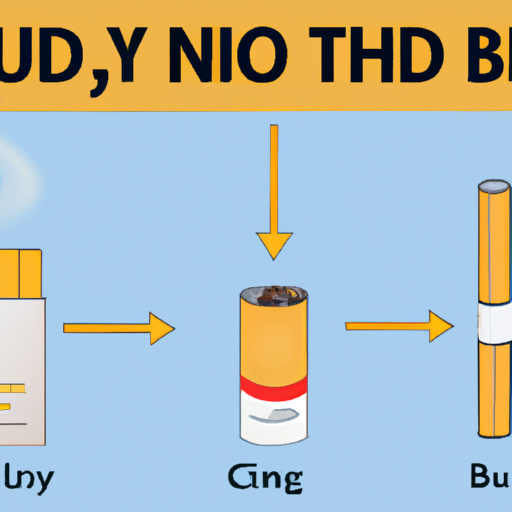
Growing up in the United Kingdom, I was surrounded by the pervasive presence of cigarettes. From my parents smoking in the house, to advertisements plastered on billboards and in magazines, to the distinctive smell of smoke in public spaces, cigarettes were an inescapable aspect of daily life. It wasn’t until I reached adulthood and became more aware of the dangers of smoking that I began to see the true impact of cigarettes on both individuals and society as a whole.
Smoking has a long history in the UK, dating back to the 16th century when tobacco was first brought over from the New World. It quickly gained popularity among the upper class and became a symbol of wealth and status. However, it wasn’t until the 19th century that cigarettes as we know them today were introduced. In the early 1900s, cigarettes were mass produced and became more affordable, leading to a sharp rise in smoking rates among all social classes.
Fast forward to the present day, and cigarettes are still a widely consumed product in the UK, despite efforts to reduce their usage. According to a 2019 survey conducted by the Office for National Statistics, 14.1% of adults in the UK are smokers. This equates to roughly 7.4 million people, a staggering number when you think about the health consequences associated with smoking.
One of the most significant impacts of cigarettes on individuals is the effect on their physical health. Smoking has been linked to a multitude of health problems, including respiratory diseases, cancer, and heart disease. It is estimated that in the UK, smoking is responsible for approximately 78,000 deaths per year, making it the leading cause of preventable death in the country. As someone who has seen the detrimental effects of smoking firsthand, it’s difficult to understand why so many people continue to engage in this harmful habit.
One answer may lie in the addictive nature of nicotine, the main component in cigarettes. Nicotine is a highly addictive substance, and many smokers find it difficult to quit due to the physical and psychological dependence on cigarettes. This is further reinforced by the tobacco industry, which has a long history of using strategic marketing tactics to target vulnerable populations, such as young adults and those from lower socioeconomic backgrounds.
Another impact of cigarettes on society is the financial burden it places on healthcare systems and the economy. The National Health Service (NHS) estimates that smoking-related illnesses cost the UK economy around £12.6 billion each year in healthcare and lost productivity. This not only affects the government’s budget but also puts a strain on the healthcare system and affects everyone’s access to quality care.
Furthermore, the environmental impact of cigarette production and consumption cannot be overlooked. Tobacco farming requires a significant amount of land and resources, and the chemicals used in the growing process can harm the soil and surrounding wildlife. Cigarette butts are also a major form of litter, with an estimated 79% of litter being related to smoking. Not to mention, the air pollution and carbon emissions from cigarette production and smoking contribute to the degradation of our environment.
Despite the overwhelming evidence against smoking, cigarettes remain a legal and easily attainable product in the UK. The government has taken steps to reduce smoking rates, such as implementing a ban on smoking in public places in 2007 and increasing taxes on tobacco products. However, there is still more that can be done, and it starts with education and awareness.
Schools and other educational institutions play a crucial role in educating young people about the dangers of smoking. This includes teaching them about the health consequences, the addictive nature of nicotine, and the tactics used by the tobacco industry to target them. By educating young people, we can empower them to make informed decisions about their health and avoid falling into the trap of cigarette addiction.
The government and healthcare organizations also have a responsibility to provide resources and support for individuals who want to quit smoking. This can include free counseling services, nicotine replacement therapies, and access to medications that can aid in smoking cessation. By making these resources more readily available and affordable, we can give people the tools they need to break free from the grips of cigarettes.
In addition to addressing the issue of smoking, a shift in societal attitudes towards cigarettes is also necessary. We need to stop glamorizing smoking and instead focus on the negative impact it has on individuals and society. This includes banning all forms of tobacco advertising and marketing, as well as promoting a cultural shift towards healthier lifestyle choices.
In conclusion, cigarettes have been a prevalent and destructive presence in the UK for centuries. While progress has been made in reducing smoking rates, there is still a long way to go. As a society, we must continue to educate and advocate for change in order to protect the health of individuals and the health of our environment. Only then can we truly break free from the toxic grip of cigarettes.